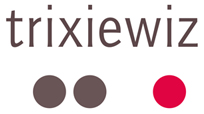On the second of December 2016, we organised a conference called “Transforming Willkommenskultur – Refugees’ Standpoints on Solidarity, Activism, and Representation” in cooperation with a group of refugee activists (see here for invitation and programme). The aim of this event was to foster and strengthen the networks between different groups of migrants, refugees, and local welcoming initiatives. In addition, the conference sought to facilitate an exchange about strategies for the improvement of living conditions for refugees and migrants in Germany and offer a collective critique of current European migration policies.
The central concern of the conference was to foreground the perspectives and suggestions of refugees. Rather than talk about or for them, the conference aimed to speak with refugees. In front of an audience of politicians, volunteers, activists, and other interested people, conference speakers and participants formulated practical political demands and developed strategies to counter current challenges. To achieve this end, we invited 8 refugee activists to speak who were involved in different initiatives and self-organised groups fighting for the refugee rights. (These organisations included Refugee Movement, My Right is your Right, Jugendliche ohne Grenzen, Women in Exile and Friends e.V., Bündnis gegen Lager, Afrique-Europe Interact, International Women’s Space). In selecting the speakers and moderators, it was important for us to include a high proportion of refugee women* due to their marginality in public discourse. Additional refugee women* joined the event and workshops as part of the audience and through discussion.
The conference began with a presentation and panel discussion during which differing notions of solidarity, experiences with political work in Germany, and the demands of different initiatives were discussed. After lunch, the audience split into four working groups where different topics were approached in greater depth. These working groups were comprised of the following: 1. Cultures of Resistance in Migrant/Refugee Lives; 2. POC in Art and Culture – Political Demands, 3. From Personal Experiences to Political Demands- Refugee Women* Speak Up! 4. „No Entry“ Experiences – The European Contradiction: Migration Policy vs. Human Rights.
In the final session, the workshop leader brought participants together for a concluding panel and a summary of the workshop discussions. During this closing session, two things became clear: Firstly, important political work is already being done by refugees. However, there are also structural challenges that refugees face when doing such political work. These include precarious and increasingly restrictive asylum policies in Germany and Europe, which pose special challenges. Under these circumstances, joining forces and establishing stronger networks is urgently needed. Furthermore, we need a change in public discourse surrounding migration and asylum. Refugees must no longer be seen as helpless and apolitical recipients of support and services. Rather, they should be viewed as self-determined political subjects with agency, who are actively pursuing personal and political goals. This conference made a small contribution to this shift in public discourse and in the creation of stronger networks of solidarity.


